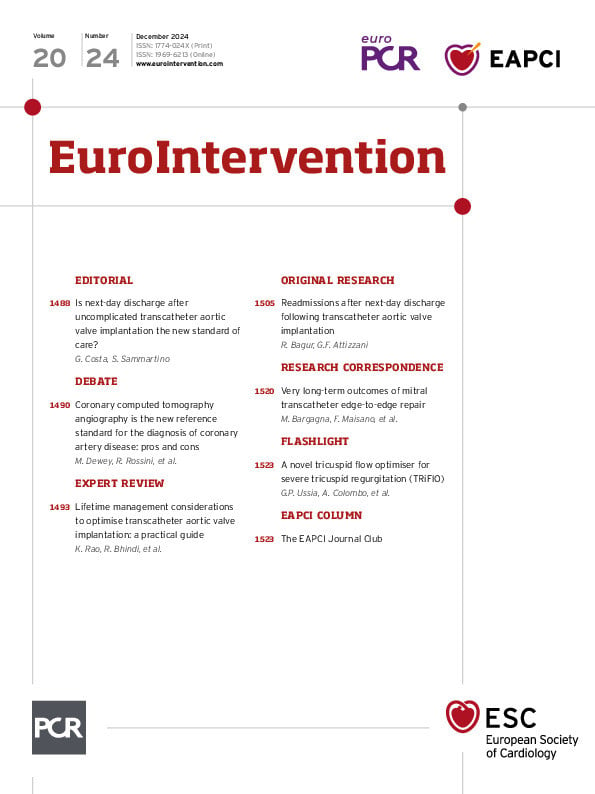New section
The EAPCI Journal Club began as an educational and training initiative aimed at connecting, engaging and educating peers and colleagues across Europe. Maintaining and developing professional competence involves a strong understanding of the trials which underpin the daily clinical activities of all interventional cardiologists, whether working in academic or clinical roles. The EAPCI Journal Club was initially developed to share knowledge and support and promote early career interventional cardiologists; however, over time this has developed into an important resource for all members of the EAPCI community. Through the Journal Club, our goal is to strengthen ties within and between both the academic and clinical communities, promote an open exchange of knowledge, and provide a supportive environment for early career interventional cardiologists to develop their critical analysis and presentation skills.
EAPCI Journal Club meetings are provided through an online webinar platform and have been designed to incorporate both senior and early career interventional cardiologists. The most recent trials are chosen based on their scientific relevance and application to daily practice. In order to support the needs of the entire community, the Journal Club aims to cover structural, coronary and pharmacotherapy trials over the course of each Journal Club season. Season 1 of the Journal Club covered important trials such as T-PASS, ILUMIEN IV and NOTION-2. Season 2 has already commenced with very successful webinars discussing RESHAPE-HF2 and TRI.Fr.
Papers are presented by an interventional cardiology fellow, giving them the opportunity to develop their critical appraisal skills and to select the key components of the paper to highlight to the audience. An expert commentary is provided on the paper by either a senior author from the paper or a recognised expert in the field, offering their insights into the paper as well as placing it in the context of the prior literature in the field and current clinical applications. EAPCI members are encouraged to participate by putting their questions to the expert via X prior to the Journal Club meeting. The three most relevant questions are answered, initially, during a discussion moderated by a senior interventional cardiologist with expertise in the field and, then, during the Journal club meeting, an early career interventional cardiologist monitors the chat and puts the members’ questions to the group.
Active participation in EAPCI Journal Club meetings enhances the careers of all those involved, and through the EAPCI Young Committee we aim to link with EAPCI country ambassadors to increase participation and ensure all member countries are represented. Whilst most benefit can be gained from active participation in the live webinar, archived Journal Club webinars are available for EAPCI members on ESC 365 to allow members to catch up on missed activities. We look forward to strong participation in Season 2 of the EAPCI Journal Club.

